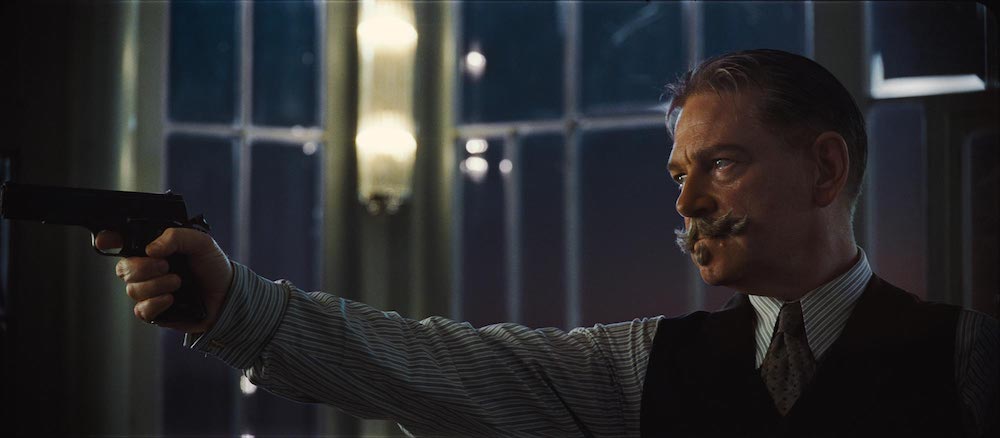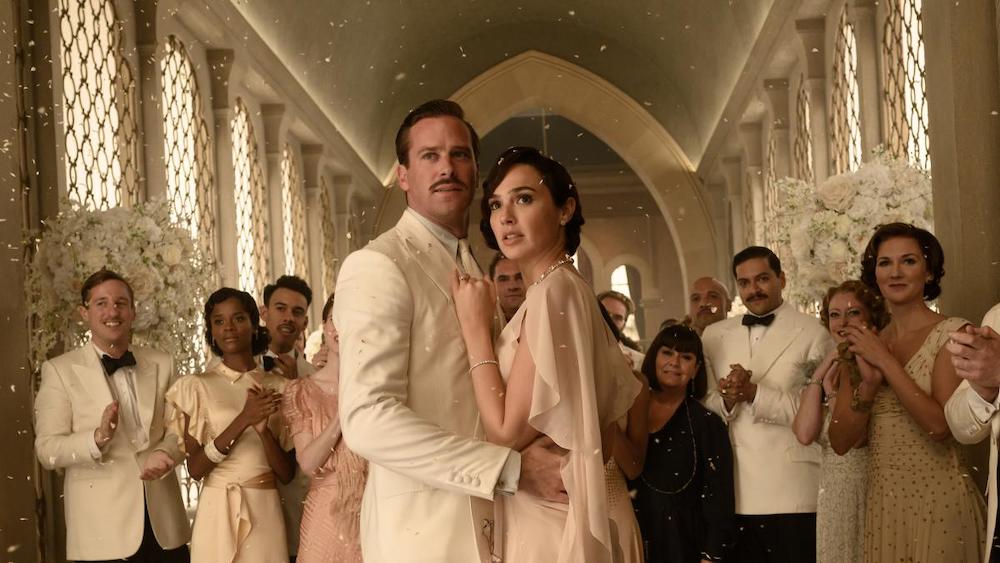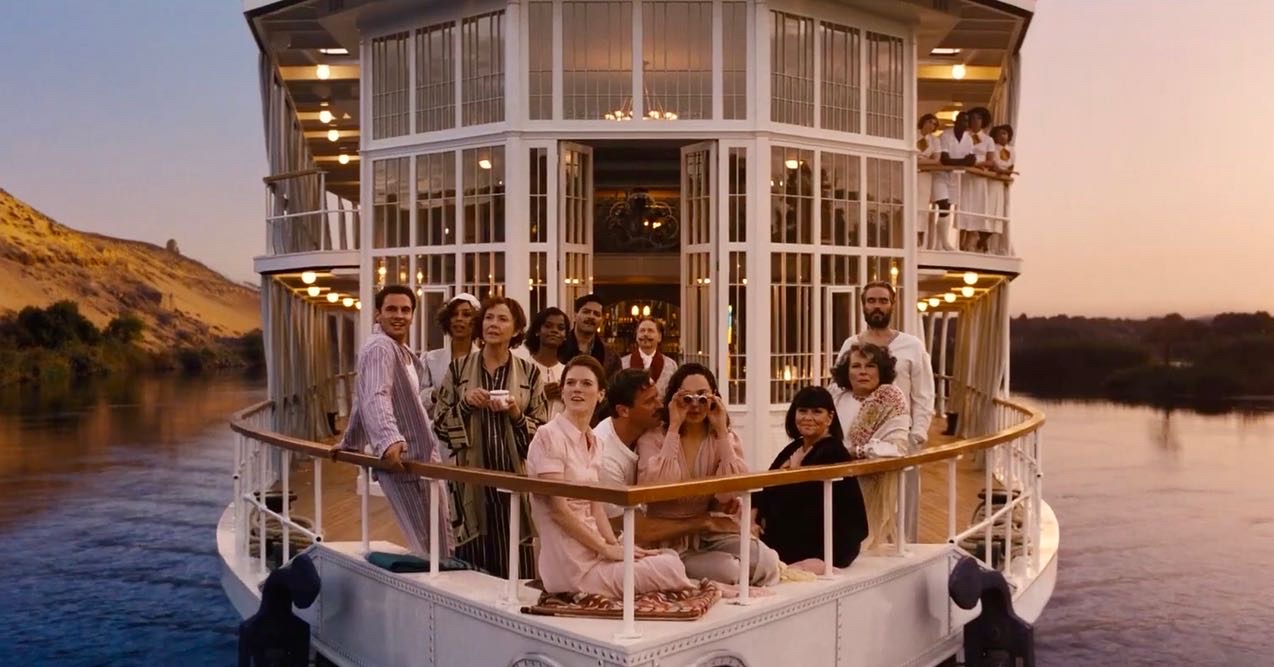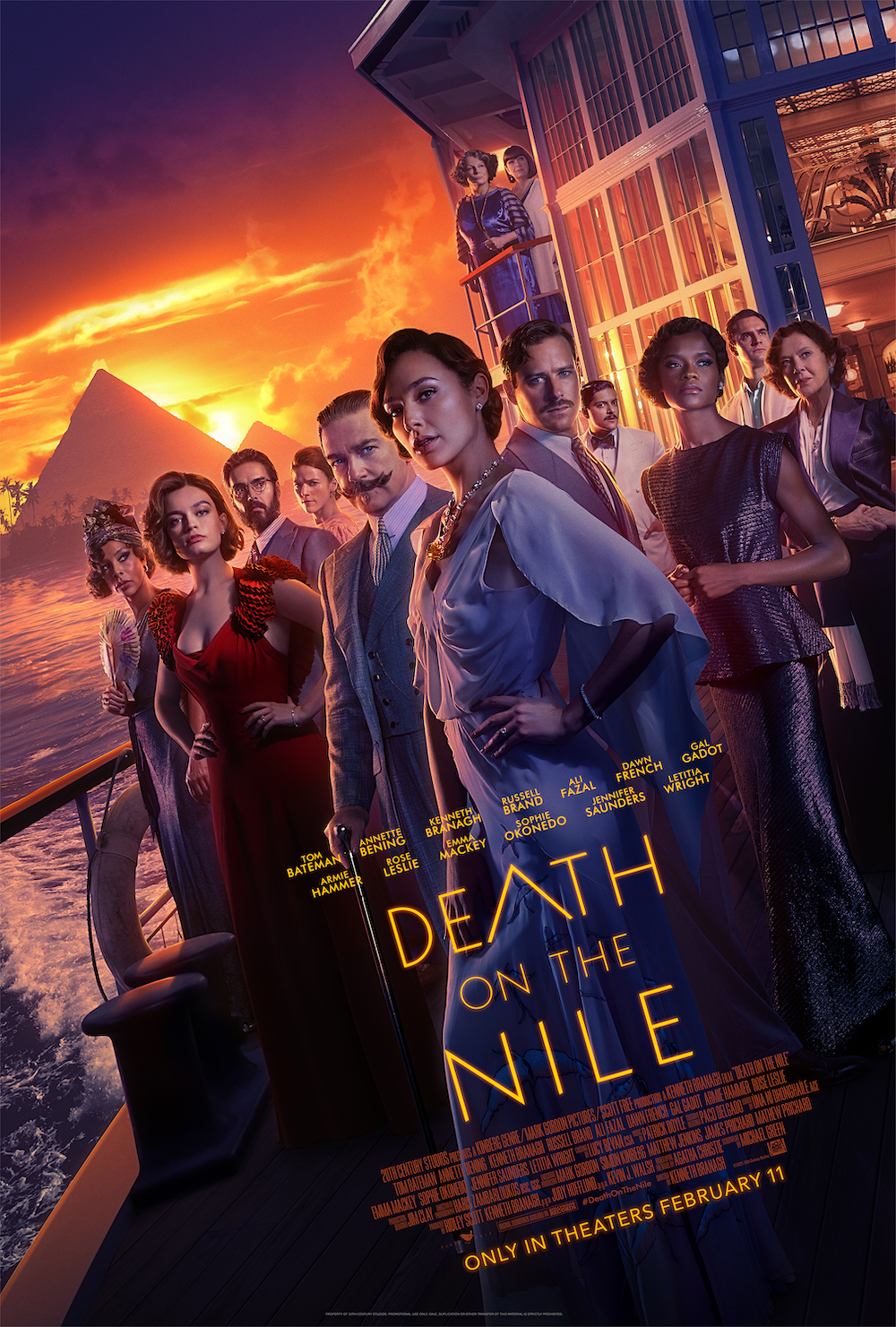Basically: When the jewel of the Nile is found dead in her quarters it’s up to Hercule Poirot to answer the call for justice on a cruise whose passage is paid for in tragedy and secrets.
In Death on the Nile, the peace and tranquility of the romantic honeymoon getaway of Linnet Ridgeway (Gal Gadot) and Simon Doyle (Armie Hammer) on the S.S. Karnak are destroyed after one of the passengers is found murdered. As everyone is losing their heads, the renowned Belgian detective Hercule Poirot (Kenneth Branagh) is tasked with identifying who the killer is. Based on the 1937 novel of the same name, the concept for spoilers is probably moot but, in this case: The play’s the thing, right?

In his most potent interpretation, Kenneth Branagh brings Poirot back to the screen. Hercule Poirot is the world’s greatest detective. You can ask him, he will tell you—and go into heavy detail. Branagh, in this outing, focuses on the motivations of our detective. In the past, Poirot has been portrayed as an aloof, dispassionate, cold machine of deductive reasoning. This method is the food that feeds the “little gray cells.” However, Branagh gives us an all too human Poirot. We are shown a character study that is not the effete, particular, funny little man but instead a man driven by not just the need for justice—which does play a part—but an obsession borne of trauma. A trauma triggered by a past life of war where he saw the blood and gore of men torn asunder in battle with guns and bombs, as well as the loneliness that comes from losing true love in a senseless train bombing. This more fleshed out Poirot is a detective who fights for law and order as a trauma response. He reminds us that all he has left is humanity, something no one else truly understands in their adoration of the “world’s greatest detective.”
The one word that I would unironically use about this movie is lavish. If MTV Cribs existed in the 1930s, it would look like this shine. With the Roaring 20s breathing its last gasps and the dark clouds of WW2 gathering, the pageantry, spectacle, and excess are all on display. My little progressive heart was nearly offended at the opulence. From the jump, Branagh drags you into this world and you cannot help but be seduced by its trappings. The partying is hedonistic, the music taboo, and the love, pure and…otherwise, is most assuredly both. With the backdrop of the Nile, Death on the Nile’s world mimics our own in more ways even I am comfortable discussing. However, that’s the power of movies and Branagh wields that power like early 2000s Tiger Woods on the putting green.

Up to this point, Death on the Nile has been adapted in some form or another more times than Little Women. So how does Branagh make this a worthy effort? How does a UK actor from Belfast play the inscrutable and very Belgian detective? With strategic licensing and daring, that’s how. Managing to keep the core story and energy intact, the movie goes in bold directions to fill in the backstories of characters who are already compelling to begin with. He makes sure to highlight the chemistry between Poirot and the rest of the cast of characters, even if it’s for the briefest of moments.
Equally as significant is the chemistry between the cast members themselves, which is both striking and at times unctuous. I would give examples like my editor wants but this is a mystery, where every narrative exchange is a secret to discover and unravel, and I do not want to take that from you. Some characters are changed, added, and, frankly, they survive; more emphasis is placed on deepening your voyeuristic need to know. These changes only serve to give us a fuller world and a well-crafted interpretation of an 85-year-old story. Agatha Christie’s work of the eponymous detective solving the unsolvable crime with an overly complex [believable] solution is the blueprint that stands today. So to Knives Out, Batman, Luther, Columbo, and the rest, Agatha Christie says: “You’re Welcome.”

Death on the Nile is one of my favorite novels, whereas Branagh’s Murder on the Orient Express is a story of moral relativism. In Death on the Nile, no one is clean. One of the most enigmatic characters is Salome Otterbourne (Sophie Okonedo). As an aside, with a name like that, there is no one but Ms. Sophie Okonedo CBE who could play this role. The singer Salome is a blues-slinging powerhouse who’s as deadly on stage as she is in life. She fights dirty, swears strategically, and loves hard—sometimes with too many people…at the same time. Okonedo’s portrayal never allows Salome to let love get in the way of money, common sense, or a good drink. She is one of the licenses taken by Branagh. In the book, she is a tawdry romance writer based on a rival of Christie. But as Poirot says, Madam Otterbourne is “magnificent.” As both a foil and potential lover for Poirot, her presence is intoxicating and tragic—not unlike the story we find ourselves in.
In the End: We find tragically flawed, toxic, and oh-so-messy characters behind the façade of success, wealth, and privilege that puts ‘Tiger King’ and the Kardashians to shame. And at the end of it all, it reminds us of what the prophet told us: ‘Mo Money, Mo Problems.



